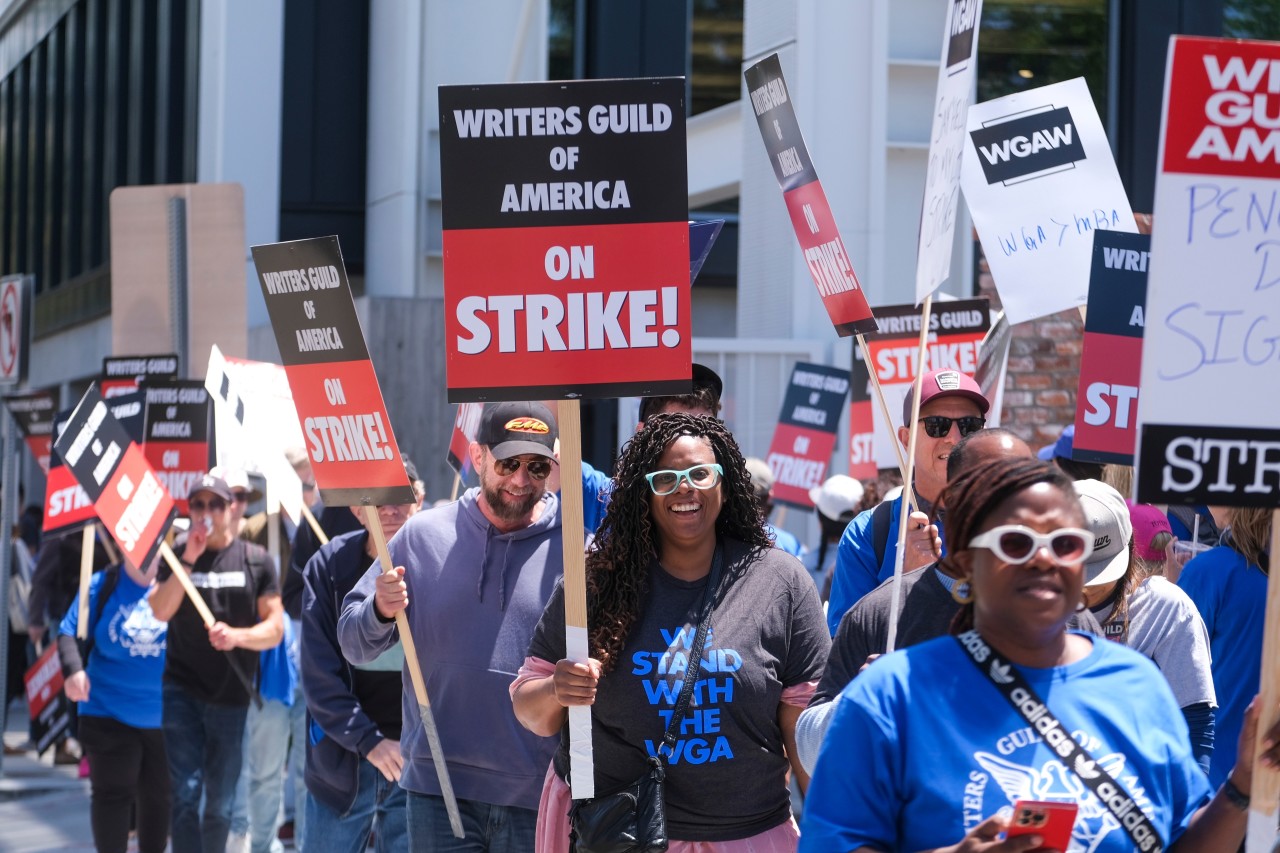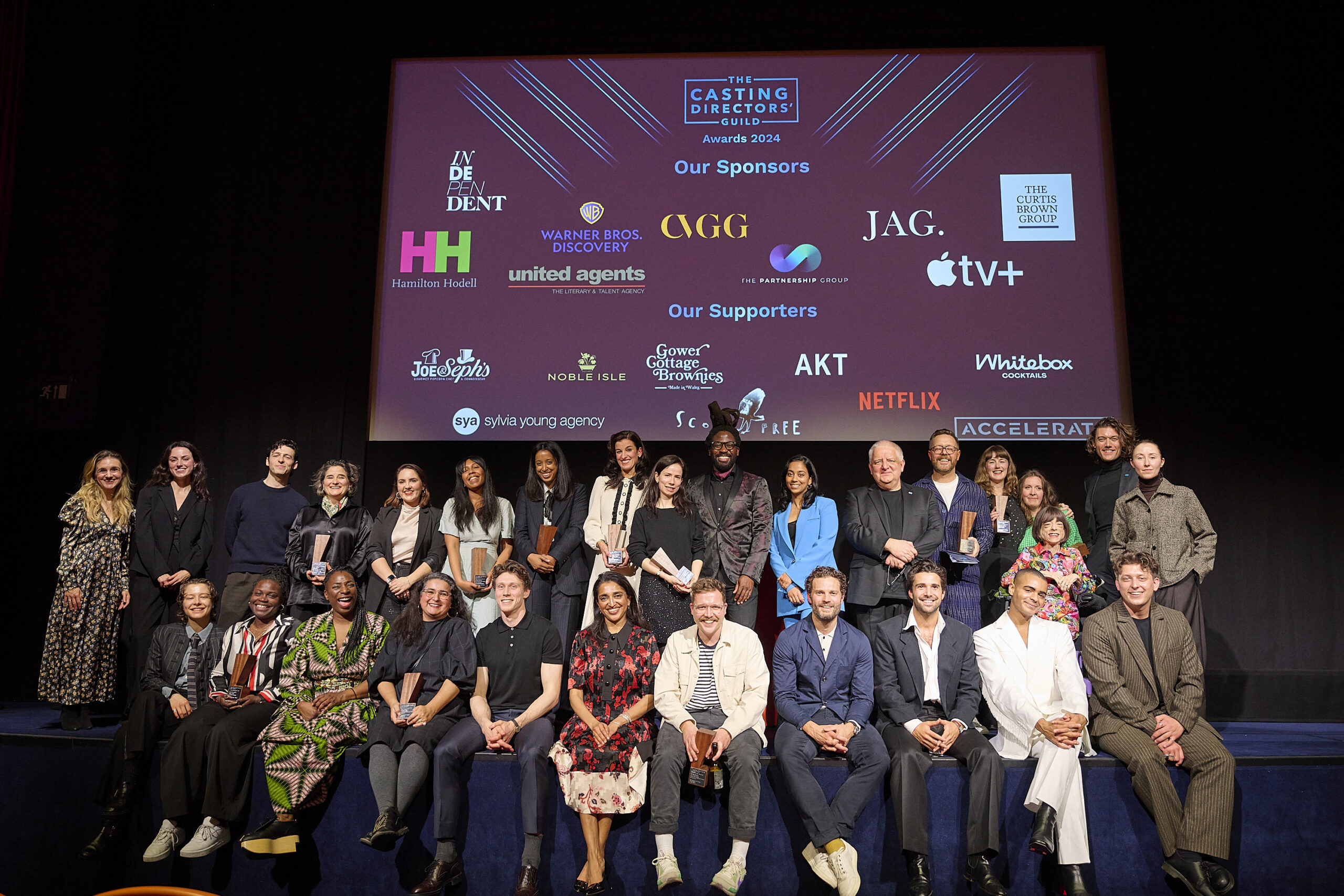Why the Writers’ Guild of America is striking and how the writers’ strike could affect actors and the entertainment industry in the UK
Published on 22 May 2023.
Since 2 May 2023, the Writers Guild of America (WGA) – a labour union representing 11,500 writers across its East and West Coast branches – has been on strike. Significant factors for the walkout include higher pay, residuals from streaming platforms, job security and regulating the use of Artificial Intelligence (AI).
The strike is the biggest disruption to the entertainment industry since the COVID-19 pandemic and is predicted to last into the summer. The last WGA strike in 2007/2008 continued for 100 days, costing the Los Angeles economy approximately $2.5 billion.
The WGA negotiates with the Alliance of Motion Picture and Television Producers (AMPTP) the terms of the Minimum Basic Agreement (MBA) every three years. The agreement covers pay, health insurance, pensions, and protections for its writers. The MBA only covers content written for film and broadcast television (not streaming platforms) so writers have to haggle terms with the platform, resulting in less pay than broadcast.
Negotiations began in March 2023, and on 18 April 2023, 97% of WGA’s members voted to strike if they did not reach an agreement with the AMPTP by 1 May 2023. The deadline passed with no deal met, so writers closed their laptops to join picketing lines across the East and West Coasts.
Why are the writers striking?
Residuals and pay
A significant sticking point is around residual pay from streaming platforms. Residuals are financial compensation paid to writers for the reuse of their credited work. This can be a lucrative sector for writers working on broadcast television, especially if a show goes into syndication – where TV and radio shows get sold to other networks and countries. The best example is the well-loved 90s sitcom Friends, which is still in syndication worldwide with writers David Crane and Marta Kaufman worth a staggering £320 million each.
With the increase in streaming services (in the UK, there are 28.5 million online subscriptions to platforms such as Netflix and Disney+) and a shift in viewing habits, the demand for quality writing has increased. However, streaming services – where half of all series writers work – don’t pay residuals at the same level as broadcast networks, so writers see their residual pay slashed. Award-winning writer, Sheri Holman, recalls her exasperation at recently receiving a residual cheque for $8 (£6.40) for her work on an Apple TV+ show as writers are facing a critical time on pay and working conditions.
Writers’ room size
The size of the traditional writers’ room is getting squeezed, and ‘mini rooms’ are springing up staffed with as few as three writers. Game of Thrones author George R.R Martin has criticised the slimmed-down model – where fewer writers are required to do the work of a full writing team for a fraction of the pay – saying they make it impossible for new writers to succeed as there are fewer opportunities to get writing experience or to be on set. The WGA wants to negotiate minimum staffing for episodic TV rooms, so they have a guaranteed period of work to create job stability.
Regulating the use of AI
The Guild also wants to regulate the use of AI by limiting it to the research and brainstorming stage of script development.
You can read the WGA’s full proposals here.
What impact does the strike have on the industry?
During the strikes, the WGA rules are: “Writers cannot do any writing, revising, pitching or discussing future projects with companies that are members of the AMPTP.”
Actors, producers, and directors across the industry are also standing in solidarity with the writers, and Drew Barrymore stepped out of hosting the MTV Movie Awards in support.
How is the strike affecting productions currently filming?
Projects written in the USA before 2 May 2023 or by non-union staff remain unaffected – although productions with a finished script cannot undertake rewrites or adjustments until the strikes end. Stranger Things creators Matt and Ross Duffer are supporting the writers and have ceased filming the final season, tweeting, “Writing does not stop when filming begins.”
Late-night talk shows such as The Daily Show and Jimmy Kimmel Live! have gone off air, with re-runs of old episodes plugging the gap. Notable productions impacted include Cobra Kai, The Handmaid’s Tale, Billions, The Last of Us, Yellowjackets, and the Marvel series Blade. There is speculation that the third series of Euphoria, scheduled to premiere in early 2024, could be delayed due to the uncertainty of the strikes.
How does the strike affect actors working on American productions in the UK?
US and UK collaborations are only affected if written by WGA writers. The latest series of Doctor Who, a co-production between Disney+ Plus, Bad Wolf, and BBC, is not impacted by the strikes as the writing and filming of the show are based in the UK.
Actors filming American productions in the UK written by the Guild’s writers could be affected. Bridgerton is a prime example, written by WGA member Shonda Rhimes who pledges her support saying, “I’m a writer on strike, so for the next few months or however long it goes, I won’t be putting pen to paper.”
How does the strike affect actors working in the US?
The longer the strikes go on, the bigger the impact on the entertainment industry, which will create a knock-on effect for actors. A halt in filming will affect actors’ availability – especially if you have a job lined up to start as soon as you finish a project.
The strike could cause delays to castings as projects cannot progress without a script, and some studios might decide to cease production entirely rather than absorb the spiralling costs. In the long term, the backlog could create fewer castings while the industry catches up.
Are UK writers striking?
No. Whilst The Writers’ Guild of Great Britain has pledged their full support by telling its members not to write for American projects for the duration of the strike, work on UK productions will continue as usual.
Photo credit: Ringo Chiu / Shutterstock
 Sarah Ridgway trained as an actor and has dabbled in stand-up comedy. Sarah is now a freelance writer, and her credits include Backstage and Actors Pro Expo; she is also passionate about empowering solo female travel.
Sarah Ridgway trained as an actor and has dabbled in stand-up comedy. Sarah is now a freelance writer, and her credits include Backstage and Actors Pro Expo; she is also passionate about empowering solo female travel.












